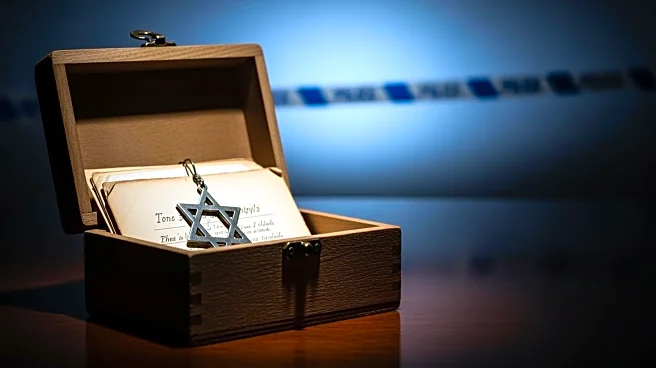What's Happening?
Jewish leaders and Holocaust remembrance groups have expressed outrage over a planned auction by the German auction house Felzmann, which intended to sell hundreds of Holocaust-era artifacts. The items
included yellow badges, personal documents, and medical records of forced sterilizations. Critics argue that these artifacts, described as 'human remnants,' should be preserved in museums rather than sold to the highest bidder. Revital Yakin Krakovsky, CEO of March of the Living Israel, emphasized the importance of preserving these items to safeguard the truth against rising antisemitism and Holocaust denial. The International Auschwitz Committee also called for the auction's cancellation, denouncing the sale as 'cynical and shameless.'
Why It's Important?
The controversy highlights the ongoing debate about the ethical treatment of Holocaust artifacts. Selling these items commercially risks erasing personal histories and undermines efforts to educate future generations about the Holocaust. Jewish leaders stress the need to preserve these artifacts in public institutions to maintain their role as educational tools and historical evidence. The backlash against the auction reflects broader concerns about the commodification of historical tragedies and the moral responsibility to honor the memories of Holocaust victims.











